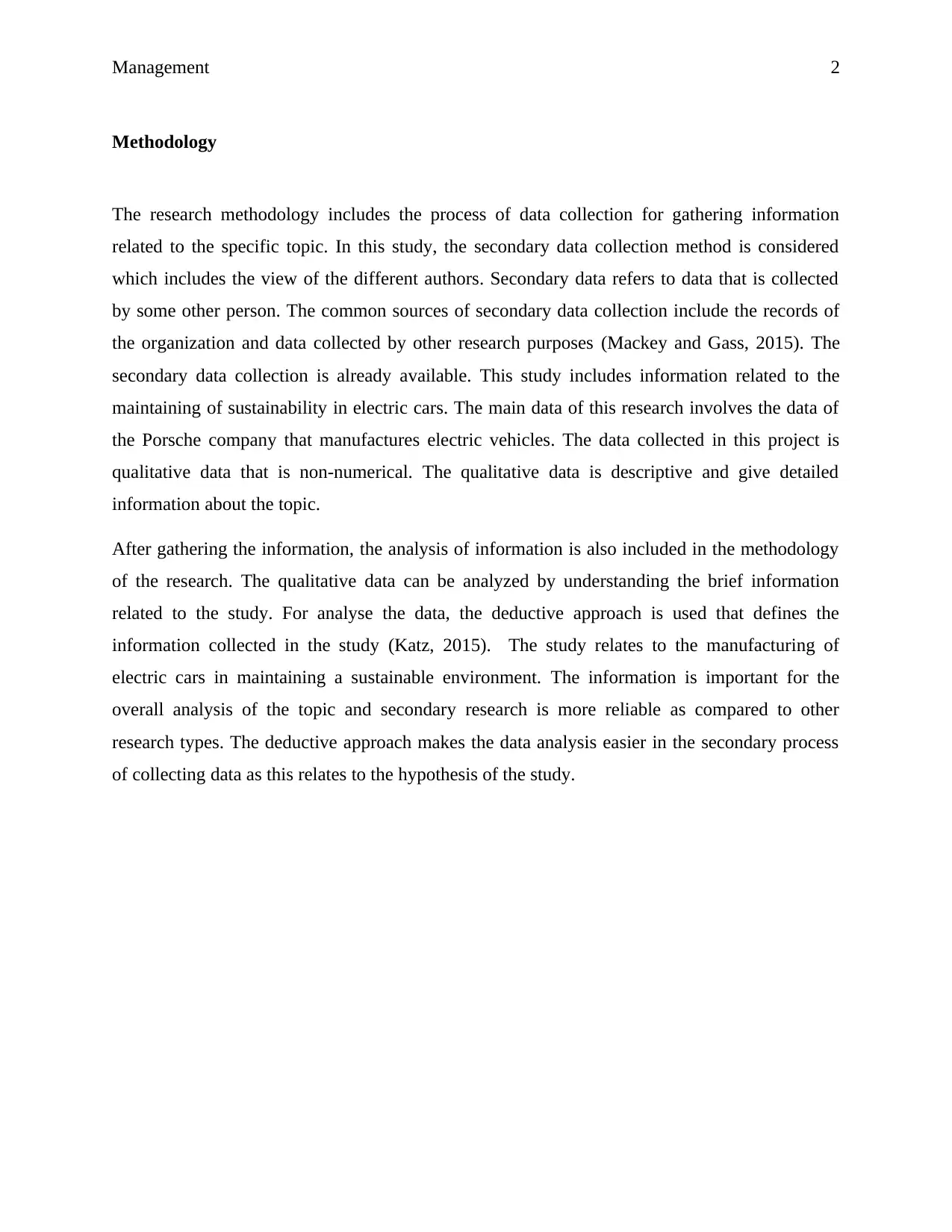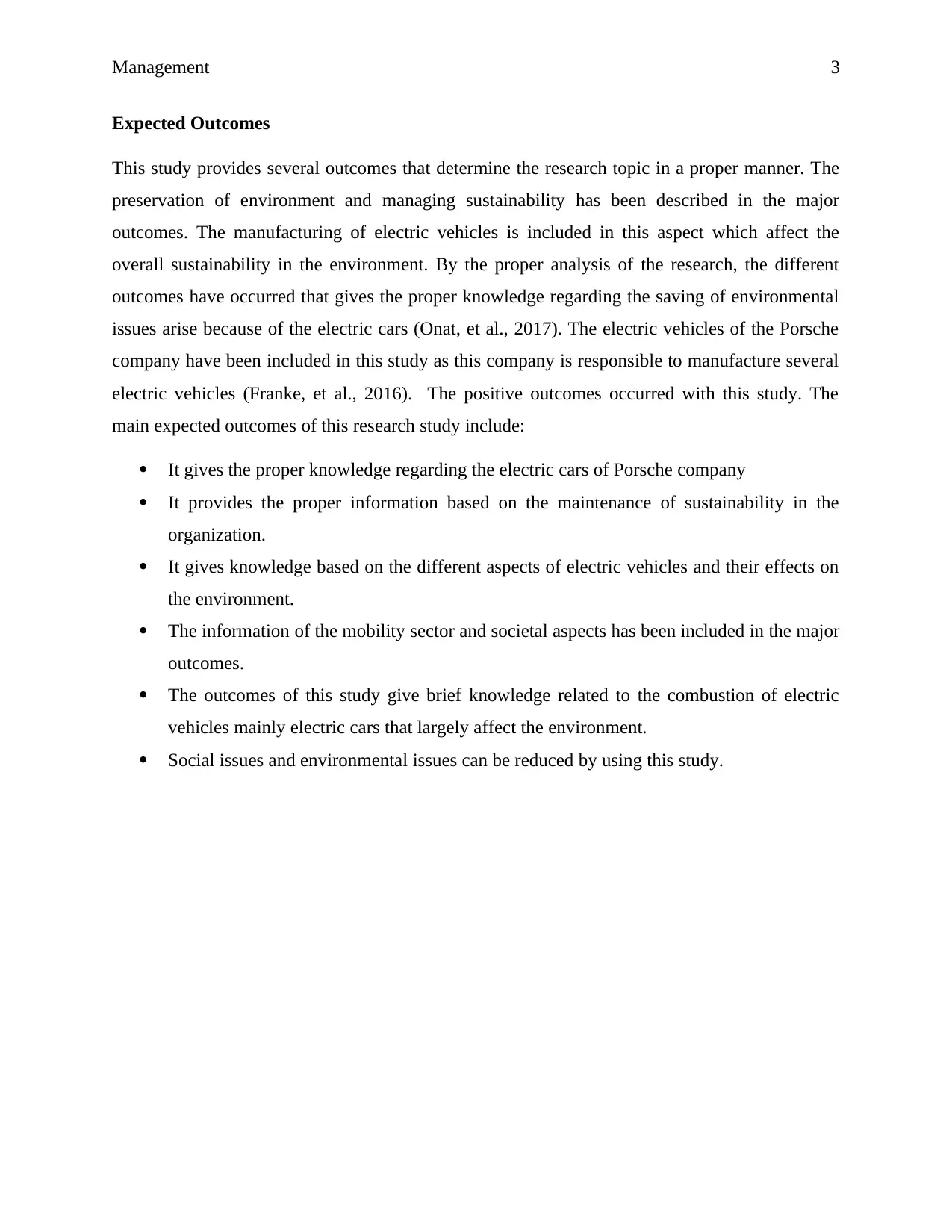Electric Cars and Sustainable Challenges: Porsche Case Study Project
VerifiedAdded on 2022/09/01
|4
|666
|24
Project
AI Summary
This project delves into the realm of electric vehicles and their associated sustainability challenges, utilizing the German automobile manufacturer Porsche as a focal point. The research methodology employs secondary data collection, drawing insights from various authors and focusing on qualitative data to provide detailed information. The study employs a deductive approach to analyze the data, examining the environmental and societal impacts of electric cars, particularly those manufactured by Porsche. The expected outcomes include a comprehensive understanding of Porsche's electric vehicle initiatives, the maintenance of sustainability within the organization, and the broader effects of electric vehicles on the environment and the mobility sector. The project aims to address environmental and social issues by analyzing the challenges and opportunities presented by electric cars, contributing to a more sustainable future. The project highlights the importance of considering environmental preservation and the impact of the mobility sector on society.
1 out of 4











![[object Object]](/_next/static/media/star-bottom.7253800d.svg)